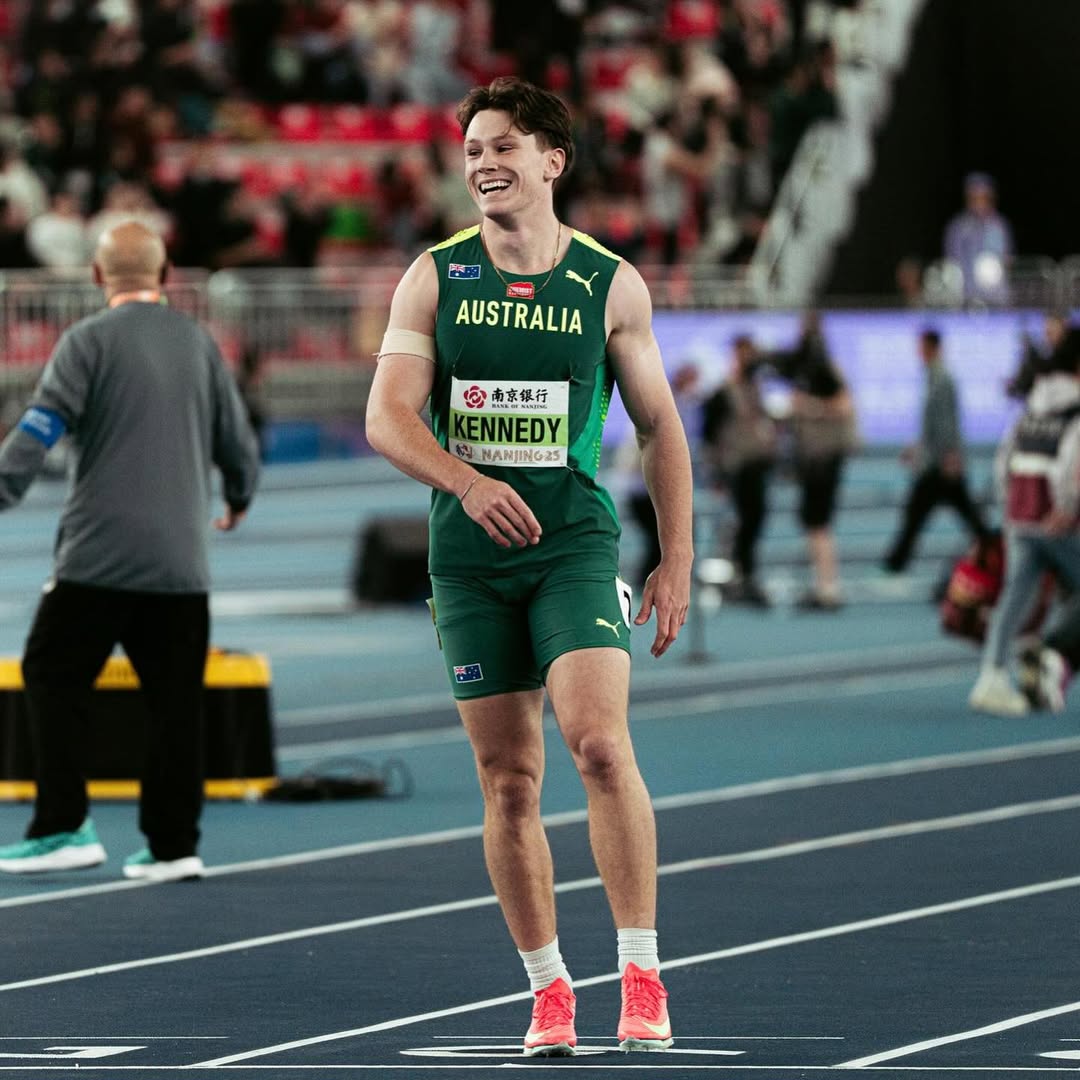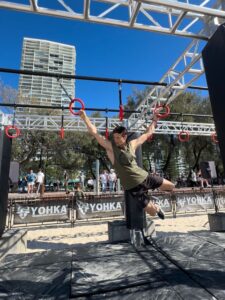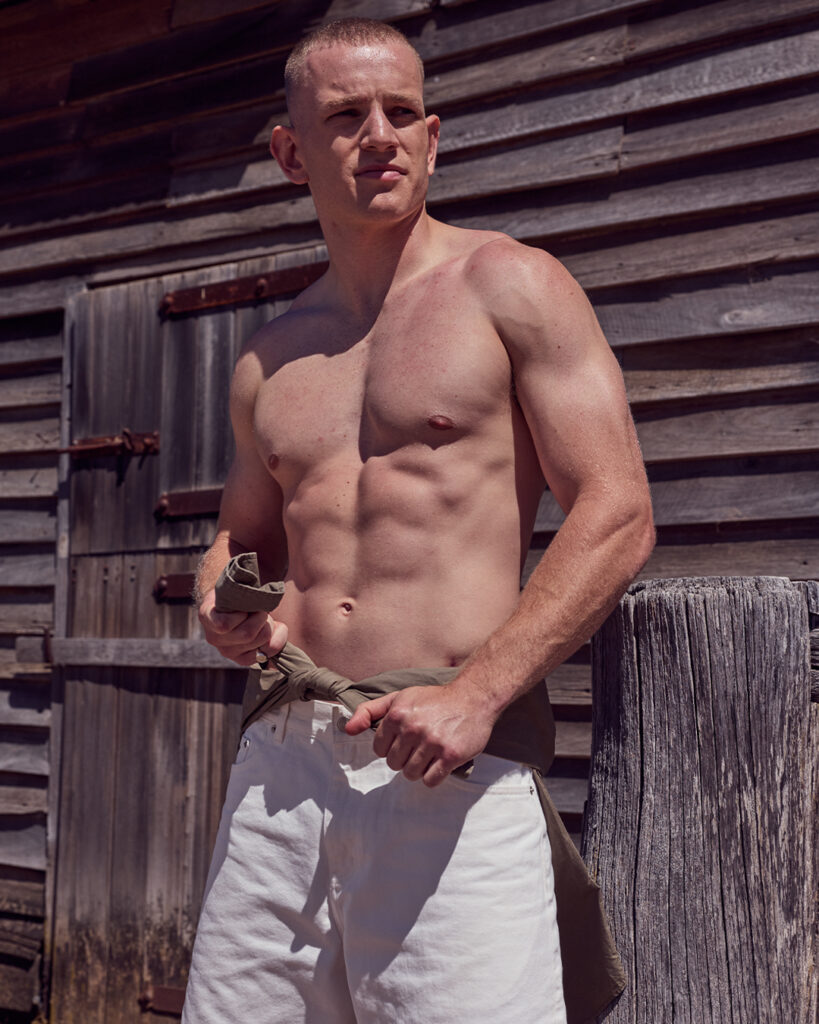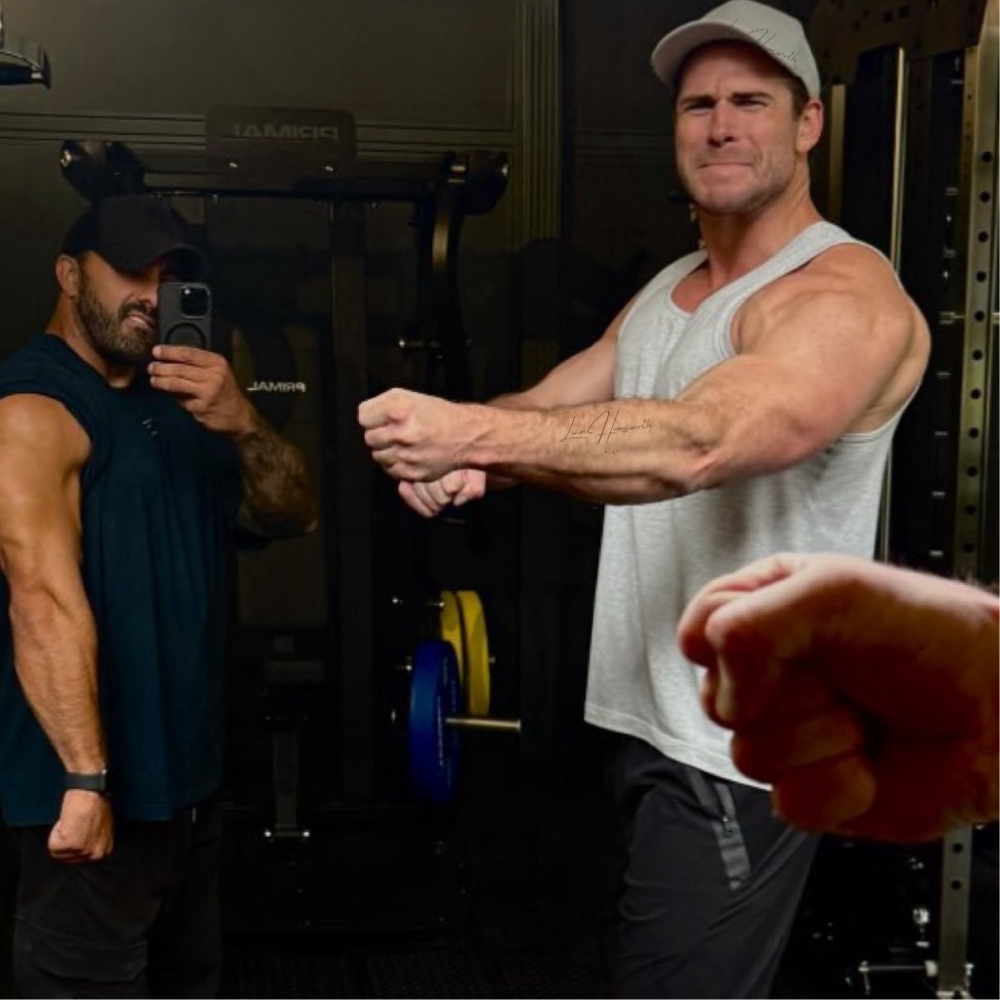FOR THE FIRST TIME in a long time Australian track feels like it has some real buzz about it. The rise has been led by a new generation: Gout Gout dropping prodigious times; Uwezo Lubenda rewriting expectations before he’s even out of school; and Lachie Kennedy breaking through the 10-second barrier with a 9.98 earlier this year.
It’s the kind of collective momentum that hasn’t existed in this country for a long time, and Kennedy believes it will have a knock-on effect. “As soon as one person starts running good, we all rise to the occasion,” he says. “When the bar gets raised, we meet it.”
Right now, Kennedy is recovering from a back issue that kept him out of September’s World Championships. “It’s going really well actually. Best case scenario, really. I’m back into it now.” The comeback, this time, is merely physical. The harder adjustments in his life happened years ago.
Kennedy was 15 when he was diagnosed with type 1 diabetes. It was a shock, but he absorbed the hit, recalibrated, and kept moving. “It’s just a normal part of my day now,” he says. “I have to keep track of my carbs, my blood sugar levels and adjust for it because you can feel pretty trash if your levels aren’t where you want them. It’s just another thing to manage, really. Other people have to manage their sleep, what they eat, how much exercise they get. You get used to it after a while.”
When Kennedy deals with blood sugar swings, he has highs that feel like “I’ve had two or three beers,” and lows that make him “crazy hungry”. But there’s no melodrama when he talks about his experiences, or any suggestion that diabetes has held him back. In fact, he believes the timing helped him. “I actually think it helped that I didn’t start [track] until I had been diagnosed. I only ever trained knowing that I had diabetes, so I never had to adjust or anything.”
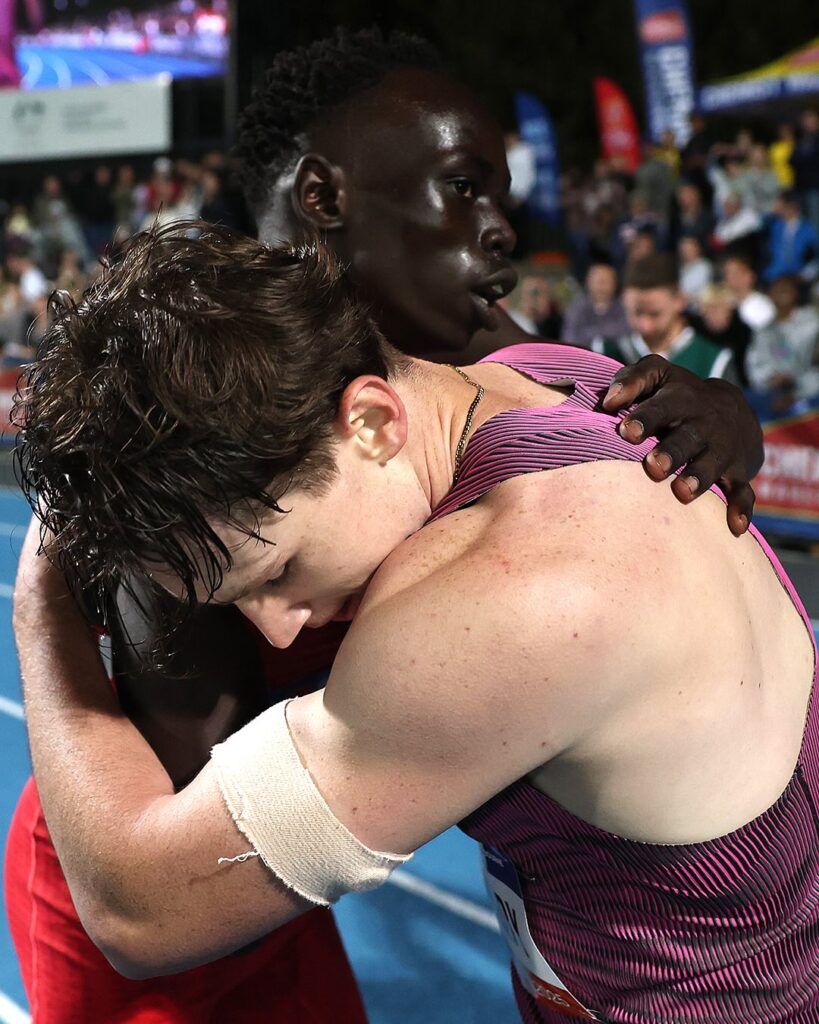
Unlike most track athletes, Kennedy came to the sport late. In school, he played rugby union, where he was the archetypal winger: lethal with the ball, allergic to defence. “Hell yeah,” he says after we assume he must’ve been a winger, given his speed. “If I have the ball in my hands, I’m lethal. Off-ball, I’m a liability. I wasn’t making any tackles.”
A coach suggested he give track a go. After just a few weeks of training, he ran a time trial and discovered he was the fastest in his school. At his first major meet, he came third in the open division for all of Queensland. “I was like, damn, I’m actually not too bad.” When it came time to choose between rugby and sprinting, the decision made itself. “I was better at track. And I didn’t like getting tackled, so it made sense.”
What he is now is a legitimate medal contender. Not just at national meets, but on the world stage. His training reflects that seriousness, and his weekly routine is designed to push both ends of the speed spectrum. “Monday morning would be pretty intense. Super fast, shorter distance and lots of brutal reps,” he begins. “Tuesday, I’ll lift pretty heavy in the gym. Wednesday would be longer stuff on the track, longer distances, more like a lactic session.
“Thursday’s sort of a recovery day. I’ll just do either light gym or just a tempo session,” Kennedy continues. “Then if I did tempo on Thursday, I’ll do light gym on Friday. If I did light gym on Thursday, I’ll do tempo work on Friday. Saturday is like race simulation day. I would do like two or three 200s or 150s at like 100 per cent effort. It’s more like how I’d race on race day. And then Sunday, I’ll do another reasonably heavy gym session.”
The hidden variable behind all of this is hydration. It dictates not just Kennedy’s performance, but how accurately his glucose tech can operate throughout the day. “Hydration is super important to me because hydration manages blood flow, and if I’m dehydrated, my tech doesn’t work as well,” he explains.
He uses Hydralyte to stay ahead of the curve, especially during summer training blocks. “At this time of year it is hot as hell out there. Being hydrated stops cramps as well. I can get cramps really, really bad, especially if I do gym and track on the same day. The electrolytes are huge for that.”

Australia’s sprint renaissance is happening in real time, and Kennedy is one of the athletes raising the bar of what’s expected from an Aussie sprinter. “Every year, a new set of juniors comes in that is our best ever set of juniors,” he says. “The expectation is to break records now. It’s not just to be the best in the country, it’s to be the best ever.” Does he think we can contend for medals? Absolutely. “Things have to go right, but we’ve definitely got the talent and we’ve got the dogs.”
Next year’s Commonwealth Games will be an opportunity for Australia’s track stars to announce themselves on the global stage. At the 2022 Games, the gold medal-winning time in the 100 metres was 10.02 – 0.04 slower than Kennedy’s personal best. “The winning time will be faster than 10.02 because I’ll be running faster than 10.02,” he says with confidence. “I’m trying to get the gold medal in the 100, but I think in the 4×100 we should be one of the favourites to win gold as well. I’m very confident that I can win gold.”
Beyond that, the Los Angeles 2028 Olympics will arrive when Kennedy is only 24. During Brisbane 2032, a home Olympics, he’ll still only be 28 and expects to be hitting his prime. “I definitely want to be making the final by then,” he says. “For Brisbane as well, I’ll be in my prime.”
The only friction in this otherwise upward trajectory comes from social media, where armchair experts and TikTok critics are eager to take shots at Aussie sprinters. One particularly loud voice is Erin ‘Spider’ Brown, a washed-out American college sprinter whose legal 100m PB is a pitiful 10.35 seconds, almost half a second slower than Kennedy’s.
Brown has gained traction on TikTok for taking aim at Aussie sprinters, calling them overrated and occasionally labelling their times as fake. Kennedy laughs when asked about it. “A large part of it definitely is ragebait. He’s doing it to get clicks. He’s very clever and very funny… My boys will send me a message and be like, ‘Bro, this guy’s clowning you’.”
The criticism doesn’t bother him, though. “There’s no subjectivity in sprinting because fast is fast at the end of the day, and you can’t say that I’m not fast. There’s no better feeling than proving people wrong, especially when it’s based on physical performance. I still love it. It fuels me. No one really talks smack anymore because I feel like I’ve proved them wrong – except Erin. So shout-out to Erin Brown for keeping the bit going. He makes some funny stuff.”
Fast is fast. And Lachie Kennedy is very, very fast.




